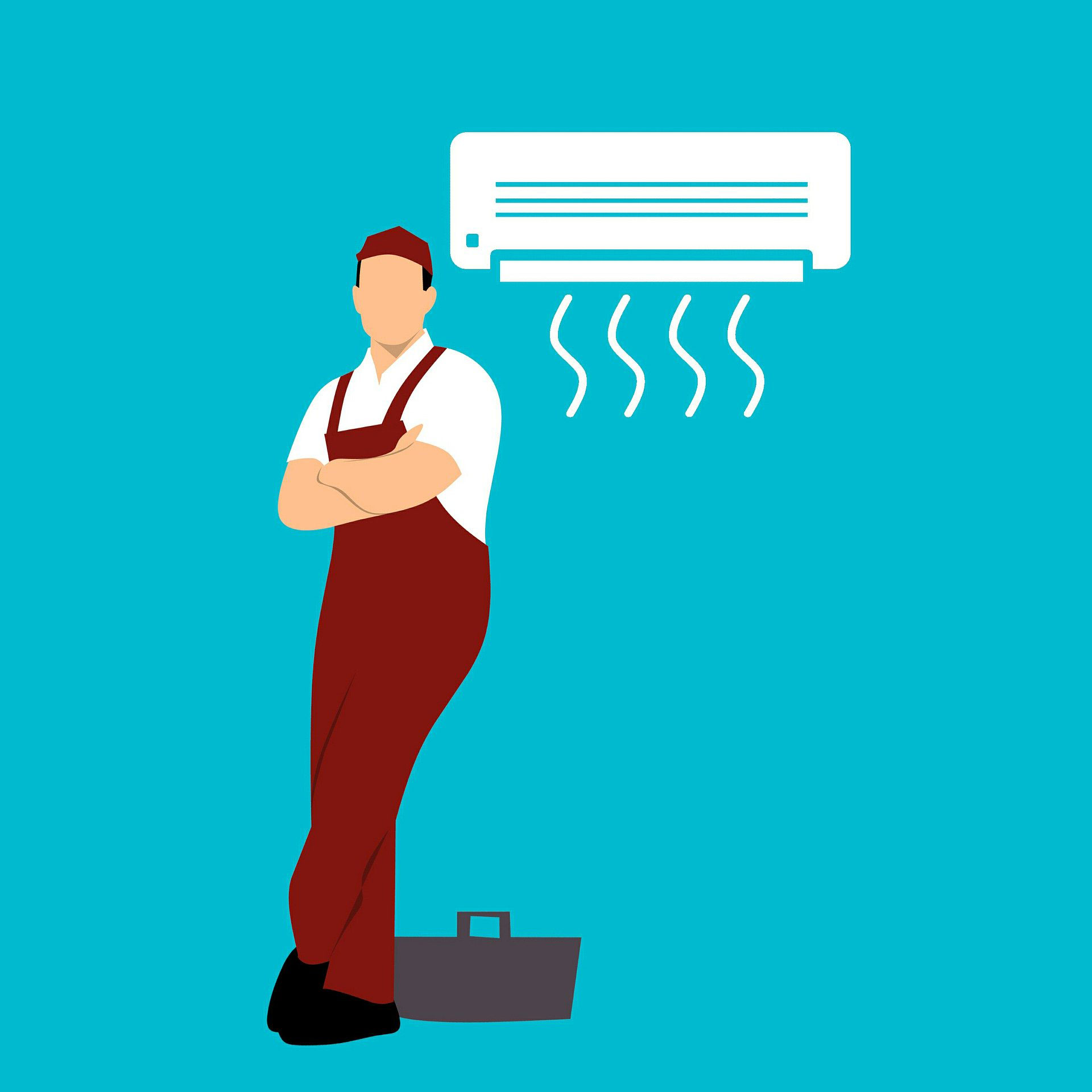Air conditioners have to constantly deal with the high heat and humidity in the Philippines. With this hard work comes the gradual wearing and tearing of the AC unit. Here are the signs to look out for to know when you need to replace your aircon:
1. When it’s a compressor problem
The compressor is called the “heart” of the aircon, as it pumps the refrigerant (the “blood” in this case”) throughout the whole unit.
While compressors are tough and durable for the most part, they can break or malfunction due to misuse and/or a lack of maintenance. And when they do break, then your air conditioner may be done for good.
A replacement compressor (and the associated fees for the technician) can cost more than half of what your paid for the unit itself.
It would be a wiser choice to replace your aircon than deal with the headaches of replacing a compressor
2. When it’s short cycling
It is normal for the compressor to cycle on and off to maintain the set temperature in the room. However, if you hear that the cycle is repeating frequently in short bursts, it is possible that your aircon is malfunctioning.
It could be a blown fuse, or a malfunctioning thermostat, or it may be the compressor itself (look at #1). Whatever it is, short cycling can exacerbate the problems of your air conditioner as it makes the compressor work harder than it needs to. This can result in the total failure of your unit.
Call a technician ASAP to mitigate the damages (and the costs too).
3. When you’re not getting cold air
Obviously, this indicates that there is a problem with your aircon.
Unfortunately, there are a lot of causes of this symptom. It could be the compressor, or a leaking refrigerant gas, or blocked vents. If you’re lucky, it could just be a dirty filter.
Before freaking out, clean your filter first as this is the easiest to do and it does not void warranty (supposing that your unit is still under warranty). If your aircon still won’t perform normally, you better call in a technician to diagnose your problem.
4. When there is condensation in and around the unit
Condensation in the aircon happens when hot air comes into contact with the the AC’s cold evaporator. A little bit of condensation is normal on air conditioners. But if it the amount of water vapor is abnormal, or it is leaking, it is a sign of problem.
It could be a clogged drain, a broken drain pan, or an iced-over evaporator (due to a dirty filter) that melted.
Depending on the severity and the frequency of the issue, you may want to replace the unit all together just to get rid of the headaches.
5. When you’re hearing weird noises
We all know the low humming noise that an aircon makes during operation. But if you hear knocking, squeaking, and rattling, there could be something malfunctioning in your unit.
There could be a loose belt, or a broken fan, or a foreign object that somehow got into your unit. What ever it is, it can lead to more problems and costlier repairs. Get it fixed as soon as possible.
6. If it’s still using R22
The R22 refrigerant (commonly known as Freon) was once the most popular refrigerant used in air conditioners and refrigerators. However it is a hydro-chlorofluorocarbon (HCFC), which plays a role in depleting the ozone layer.
R22 has already been phased out (no production and shipment) in the Philippines, which means that older units that are still using this refrigerant will have no way to replace their refrigerant should it leak or need repairs.
We recommend that you should replace your aircon; not only will it be more efficient, it will protect the ozone layer as well!
7. If it’s more than 10 years old
An air conditioner’s life can last for a couple of years, but you will note a significant drop in its level of performance through the years. If it gets too inefficient and it starts to affect your bill, strongly consider replacing it.
It is also unwise to repair a really old unit, as you can probably get a newer and more efficient model with the cost of the repair.
Also take note if its repair history; if it underwent a major repair once in its life, or has been going in and out of repair shops in the recent year, then it will be more economical to just replace it.
Conclusion
From the severity of the damage, frequency of repairs, and the unit’s age – all of these will be at the back of your mind when deciding whether to repair or replace your aircon.
A rule of thumb to follow is that if the repairs cost more than half of what you bought it for, then it will be more cost-effective to just buy a new air conditioner.
Remember the sunk cost fallacy; it will be wiser to just buy a new aircon than to keep repairing a defective one, sinking thousands of pesos in the process.
FURTHER READING: Air Conditioner Buying Guide
References:
https://www.daikin.com.au/articles/category-1/7-tell-tale-signs-its-time-replace-your-air-conditioner
https://www.philstar.com/business/science-and-environment/2018/10/04/1856975/philippines-phase-out-last-ozone-depleting-substances

Miguel Mores worked for 5 years as a member of the product management team for a home appliance company in the Philippines. He started 101appliance to answer the most common customer questions that he has encountered during his time in the industry. He now works in the digital marketing field and manages a small online bookstore on the side.

